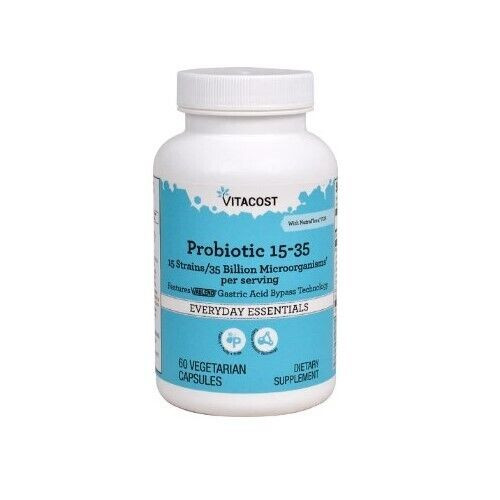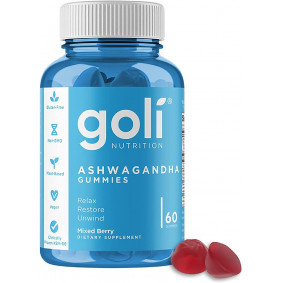Did you know that each and every human has a tiny world living inside of them? The inhabitants of this small “world,” or microbiome, are generally bacteria, and they have a lot to do with the health and function of the gut. Probiotics are beneficial bacteria or microorganisms that have been associated with supporting intestinal health and the body’s immune response.*
What is a “microbiome?”
Let’s break it down. “Biome” is defined as a community of organisms which are found to naturally occur in a certain type of climate. The community of plants and animals living within a tropical forest or a desert is an example of a biome on Earth. When we add the “micro” to biome, we are referring to the small community of living organisms that exist on a microscopic scale within our bodies, most notably within our intestines.
Each individual has his or her own unique microbiome resulting from food and environmental factors. When something disrupts the microbiome balance, such as an antibiotic regimen, which usually destroys both beneficial and harmful bacteria, the microbiome will rebuild itself, but it will not be exactly the same. In an effort to help repopulate the gut with helpful bacteria, it is a common practice to take a probiotic supplement. Probiotics may help provide protection against harmful bacteria.*
Where can I find probiotics?
There are many food sources of probiotics, including yogurts, kefir and fermented foods. Some well-known fermented foods include natto and tempeh (both made by fermenting soybeans), kombucha, sauerkraut and kimchi, the traditional Korean fermented vegetable that is created by fermenting cruciferous vegetables with lactic acid bacteria. Probiotics can also be found in pill or liquid form, usually in the refrigerated section of the natural vitamin area.
How do I read a probiotic supplement label?
There are several things to look for on the label of a probiotic supplement:
- Turn the product around and look at the Nutrition Facts. How many capsules are considered a serving?
- Right below that should be the number of CFUs (continue reading to find out more about CFUs). The blend of bacterial strains should also be listed in this area.
- There is usually an asterisk by the CFU statement. Look for the explanation; this will be the statement from the manufacturer on how long they can guarantee this number of CFUs.
What are “strains?”
A bacterial strain refers to the genetic variability within a bacterial species. In other words, Lactobacillus is a bacterial species and Lactobacillus acidophilus and Lactobacillus reuteri are both strains of the same bacterial species. L. acidophilus is one of the most famous probiotic strains. Found in dairy products, like kefir and yogurt, L. acidophilus helps promote gut integrity and nutrient absorption, thereby assisting with overall digestion.*
A second well-known probiotic species is Bifidobacterium. Generally, strains from this species produce lactic acid, helping to keep the pH of the intestines more acidic, and thus reducing the likelihood of other, more harmful bacteria colonizing in the intestines. There are many other species and strains of probiotics, all helping to promote health in various ways.
Do probiotics need to eat too?
Probiotics need something called “prebiotics” in order to flourish. Prebiotics are specific types of fiber that help promote the growth of probiotics; these fibers include inulin, fructo-oligosaccharides, and galacto-oligosaccharides. Foods like asparagus, leeks, artichokes, chicory, legumes, nectarines, grapefruit, and dried fruits are good sources of prebiotic fibers.
What does CFU stand for?
CFU is an abbreviated way to say “Colony Forming Units.” In order for a bacterium to be considered “viable,” it must be able to form a bacterial colony on an agar plate. Because these bacteria are live organisms, probiotic supplement manufacturers must account for the death of some of the organisms. Thus, the number you find on the package will refer to the amount of bacteria the manufacturer can guarantee to be present at the time of product expiration, not the amount the product started with. Most clinical studies have shown effectiveness of probiotics when dosed at >1 billion CFU.
How do I store my probiotics?
Probiotic supplements generally need to be kept refrigerated. However, new technology has allowed some manufacturers to develop strains that do not need to be refrigerated. Refer to the product packaging to determine how to store it.
This article was contributed by Jessica Riggs, MS, RDN, registered dietitian nutritionist with The Little Clinic (inside select Kroger locations). For more information about dietitian services, visit www.thelittleclinic.com/dietitians.
*These statements have not been evaluated by the FDA. These products are not intended to diagnose, treat, cure or prevent any disease.




 Shipping Charge:
Shipping Charge:

